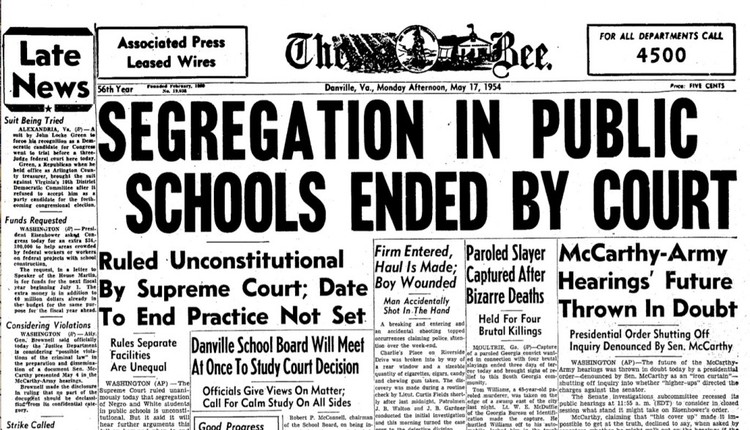


04/04/2011
It was after Brown that "progressive" elites (their ranks already beginning to swell with the post-war expansion of the law and graduate schools) came to "regard the Constitution not as a form of government but as a means of getting what they want," as Professor Harvey Mansfield of Harvard puts it. Over the last four decades the corpus of constitutional law has increased vastly as courts have removed issue after issue from the arena of popular decision and subjected them to judicial control. The law schools reflect that change. Constitutional law, usually a one-semester elective for second-year law students in 1960, today has migrated into the required first-year curriculum, and the great national law schools offer 20 to 30 second- and third-year courses devoted to the subject. And what do they learn? One popular con law text book actually begins with Brown instead of Marbury v. Madison, in which Chief Justice John Marshall first laid out the Court’s much more modest claim of judicial review in 1803.
There has been opposition to all this, of course, but opponents are hobbled by fear of what has come to be called "the Brown card." The scenario is familiar: after arguing that some particular judicial initiative or other is without foundation in text, or original understanding, or history, and is therefore illegitimate, the critic of judicial activism is faced with the question, "Well then, you must be opposed to Brown v. Board of Education." Instantly darkness descends; the critic feels the stab of panic. For affirming the correctness of Brown is now conventionally understood to be a minimum qualification for being taken seriously in polite society: to criticize Brown is to risk being called a racist. Suddenly the issue is not one of intellectual disputation but of social respectability. Therefore the critic scrambles: "Yes, I support Brown as a marvelous achievement of judicial statesmanship; it is just looking to Brown as the model for constitutional judging that I condemn." So ingrained has this reflex become on the part of critics of judicial activism that it is often offered in an anticipatory fashion, so as to ward off attack and embarrassment.
An example is an otherwise excellent article by Harvard law professor Mary Ann Glendon in a recent issue of Commentary. Glendon deplored the "expansion of the role of the judiciary in American life" exemplified by Justice William Brennan. Quite correctly, she saw Brown as ushering in the style of judging to which she was objecting. But she was at pains to distinguish between the "effects of Brown on the legal profession and on the legal order as a whole" and the Brown decision itself. She held that "although scholars may argue about its foundations in constitutional text and tradition," Brown was indeed "a great act of statesmanship."
The truth, of course, is that scholars do not argue very much about Brown’s "foundations in constitutional text and tradition." Agreement is widespread that solid foundations did not exist. But if nevertheless Brown is still to be elevated as an act of great statesmanship, then how was Justice Brennan wrong to believe that the Court possesses both the power and the duty "to promote social and political change," the view that Glendon opposes? Perhaps Glendon would argue that the Court was justified in 1954 in acting in an extra-constitutional fashion because of the moral gravity and magnitude of the issue, but that one is still free to deplore the later extra-constitutional rulings of the Court, modeled on Brown, because these respond to matters of lesser import. Many commentators resort to this position, but it is untenable. Once one admits a role in one case for the Court as extra-constitutional promoter and architect for social change, it is impossible to explain why that justification should not apply to other situations.
[Coming Clean about Brown by Richard E. Morgan, City Journal, Summer 1996.]
The most incisive and thoroughgoing critique I know of the Brown decision available online, is by historian Raymond Wolters: Constitutional History, Social Science, and Brown v. Board of Education 1954-1964.
Part I: The Historical and Social Science Evidence for and Against Brown; and